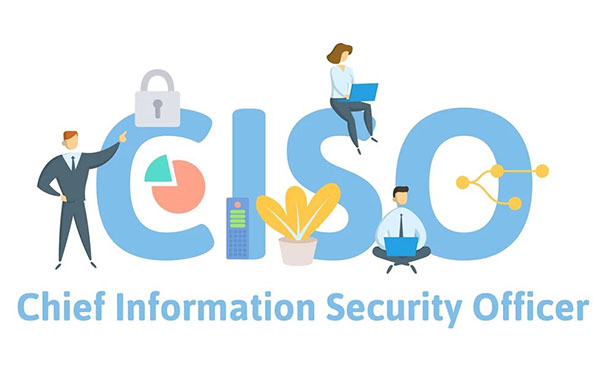CISO: A Must-Have For Your Company
Do you need a CISO? Learn what CISOs do and why having one is important for every organization Updated on June 9, 2024 A manufacturing company on the West Coast was seeking to automate and expedite its processes. To achieve this goal, the company secured useful software and infrastructure sets, which were procured from third parties or developed in-house. This resulted in considerable productivity improvement. The company was thriving, and everything was well until one midnight. The CEO received a call stating that some of the machines were not manufactured as per the specifications and that some weren’t functioning at all. Does this sound familiar? This is one of the many examples of how a company’s business continuity is impacted. Sometimes, an organization’s machines malfunction as they are controlled by hackers, and in some cases, customers' private data is stolen. Such disruptions result in reputational damages, compliance issues, downtime, and loss of customers’ loyalty, which eventually negatively impacts the company's revenue. What’s common about these cases? They lack customized, solid security and compliance measures; all they lack is “a designated person” whose role is to take care of this, a Chief Information Security Officer (CISO).
Do you need a CISO?
Hackers are always looking for vulnerabilities and loopholes in organizations. Once the vulnerabilities are found, hackers exploit and misuse the stolen data or start controlling the processes. Furthermore, operational and compliance issues are also not uncommon. If you don’t want interruptions to knock down your daily business operations, you need a role responsible for the confidentiality, integrity, and availability of your data and infrastructure. A CISO (Chief Information Security Officer) is a company official responsible for information security and compliance. A CISO is an information security specialist who understands the latest threats and vulnerabilities, various compliance frameworks, and how to tackle them. Security and compliance needs depend on the nature of the company’s operations, regardless of size. Large businesses hire full-time CISOs or even whole teams to manage information security operations, while small and medium businesses benefit from virtual CISO services. Although not every company requires a full-time CISO, every company has to protect its sensitive data and comply with applicable regulations. A small company may have greater security and compliance exposure than a large enterprise. For example, a healthcare startup may process Protected Health Information (PHI) data from multiple large customers, aggregately exceeding the security risks and compliance footprint of each individual customer. Any business that deals with sensitive data has to have information security and compliance management functions. A CISO is necessary to manage these functions effectively. Learn why virtual CISO is the best solution for small and mid-sized businesses.
What are the CISO’s roles?
The CISO creates and owns the strategy to maintain security policies, procedures, technologies, and frameworks. A CISO is generally accountable for the information security program, including:
- Security awareness and training
- Risk management
- Secure software development
- Developing and managing security policies and audit strategies
- Identifying and monitoring technical security controls
- Establishing access management requirements
- Vendor onboarding from the security perspective
- Adherence to privacy frameworks
- Ensuring business continuity
- Maintaining security budget
- Managing security incidents
A CISO’s duty is to ensure that the organization is protected from unauthorized access, vulnerabilities, malware, etc. so that it does not experience a data breach and is compliant with security requirements that come with regulations like HIPAA, PCI, GDPR, etc. CISOs also ensure that the organization complies with contractual requirements that are often above and beyond regulatory requirements. Some companies have sensitive data that is top-secret for the company and has to be protected from competitors and the intelligence services of other countries. This data may be related to finances, trade secrets, Intellectual Property, business models, and other secret information. It is CISO’s responsibility to keep the secrets intact. Read more about CISO’s roles in our blog post What does CISO do? CISO’s Roles and Responsibilities.
CISO Certification
No certification is required to be a CISO; however, CISSP (Certified Information Systems Security Professional) is the de-facto standard looked for in the job market, in addition to related experience and education. At the same time, many other certifications are also useful when seeking a CISO job. Some of them include:
- CEH: Certified EthicalHacker
- CCISO: Certified Chief Information Security Officer
- GSLC: GIAC
- Security Leadership CISM: Certified Information
- Security Manager OSCP: Offensive Security Certified
- Professional CISA: Certified Information Systems
- Auditor CGEIT: Certified in the Governance of Enterprise IT
Read more on How to Hire the Right CISO. Currently, a CISO does not have an executive role in many companies, which is a concern. The Board of Directors often does not take regular reports from CISOs as they do for other executives. This is because a CISO’s job is not directly related to revenues. But let’s ponder for a moment: if the security breach happens, it accounts for millions of dollars in revenue lost, a suboptimal public image, and loss of customers and partners. Therefore, preventing the loss of income must be treated as revenue-generated and CISOs should be treated as a more integral part of the senior leadership team.
Why is a CISO a must-have for your company?
As we learned, a CISO is a must-have for almost any company, irrespective of the nature of the business and the size of your company. A CISO is a critical role if you handle sensitive data or business-critical infrastructure. However, it may be unnecessary for some companies to retain a full-time CISO. What may help is having a CISO on an on-demand basis. A Virtual CISO or vCISO is a service on an “as needed” or an interim basis. Such services aim to provide part-time or interim help in managing information security and compliance programs to businesses that lack an internal role with such responsibilities and expertise. The advantage of having a vCISO is reduced costs. You could have a top-quality CISO without having to pay (him/her) full-time. A virtual CISO usually requires no training, can hit the ground running, and doesn’t feel obliged to play into office politics. When your company grows, and you need additional help, you could choose to hire a full-time CISO.
How Planet 9 CISOs can help
Planet 9 employs seasoned virtual CISOs with years of experience in various industries, including healthcare, e-commerce, finance, software development, manufacturing, and technology. Our experts hold senior leadership positions responsible for information security and compliance. Our CISOs can help organizations develop and implement (or improve existing) information security and compliance programs, handle security incidents, conduct security risk assessments and compliance evaluations, manage security teams, and perform other responsibilities. Feel free to contact the Planet 9 team for help with vCISO services for your business. We’ll be happy to assist!







